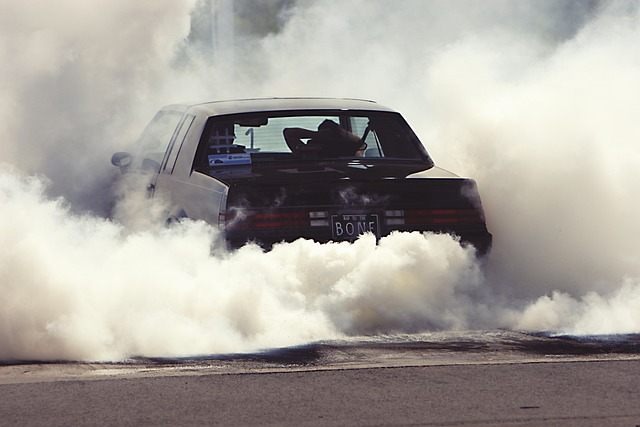
Are you worried about why your car engine is smoking? Smoke coming from the engine can be a sign of serious trouble. It’s important to recognize and diagnose the problem quickly to prevent further damage and costly repairs.
In this article, we’ll look at some common causes of car engine smoking,so you can identify what might be wrong with your vehicle.
Read on for more information about what could be causing smoke from your car’s engine.
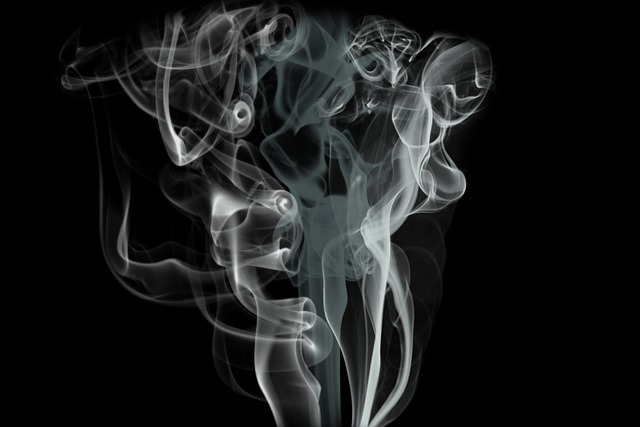
What Can Cause Engine Smoke To Appear?
Excessive exhaust smoke can be caused by a variety of issues, so it’s important to take a closer look at the causes.
Viscous buildup in the engine can cause smoke as it clogs up vital passageways and prevents proper air circulation.
Faulty wiring or cracked hoses may also cause smoke to appear as they allow combustible gases to escape into the atmosphere instead of being vented properly.
Damaged filters are another potential source of smoke, as they fail to filter out harmful contaminants from entering the combustion chamber and create thick and hazardous fumes.
Finally, inadequate cooling can lead to overheating which will cause smoke due to burning off excess oil that accumulates on hot engine parts.
In addition, worn out spark plugs may produce excessive amounts of white or grey engine smoke when igniting fuel-air mixtures in the cylinders.
If not addressed promptly, this could lead to further damage such as piston ring sticking or cylinder head warping.
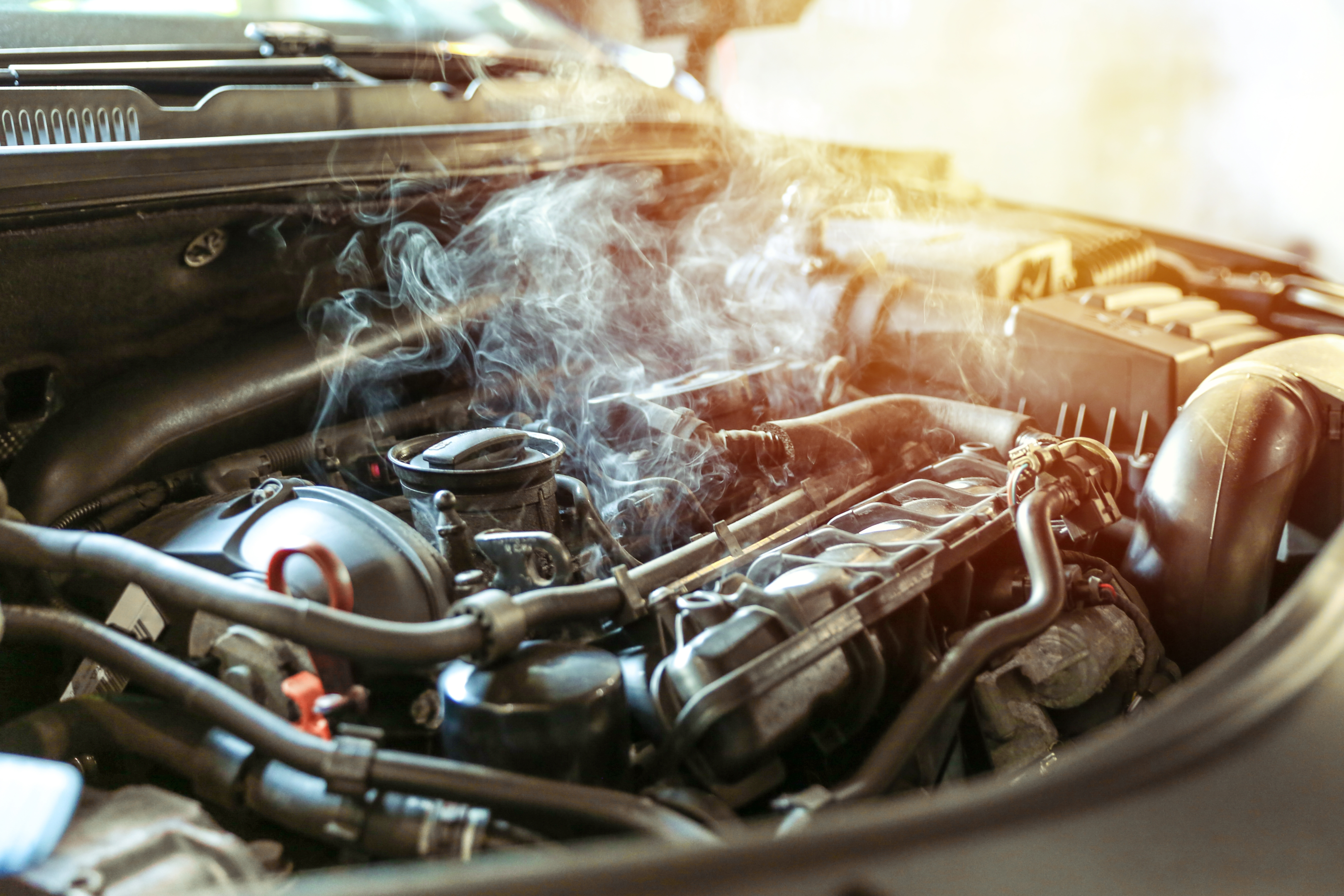
Burning Oil
If you’re seeing engine smoke coming from your vehicle, it could be a sign of burning oil. There are several potential causes of this issue including:
Excessive Oil:
Too much oil can lead to motor oil entering the combustion chamber and being burned as fuel, resulting in white or blue smoke.
Poor Maintenance:
Failing to change the oil on time can result in sludgy buildup that gets into the cylinders and is burned away instead of lubricating parts.
Oil Contamination:
If contaminants enter the motor oil, these can also be burned off which results in thick black smoke.
Ignition Timing Issues:
If an engine’s ignition timing is too early or too late it may cause more fuel than necessary to be injected at a given time, leading to smoking. This type of smoking tends to appear when accelerating quickly after stopping.
Low Oil Levels:
If there isn’t enough motor oil for combustion, then burning can occur with white smoke appearing from your car’s exhaust pipe. It’s important to check your vehicle’s oil levels regularly so this doesn’t happen.
Click here to learn more about why these issues may cause your car to start smoking.
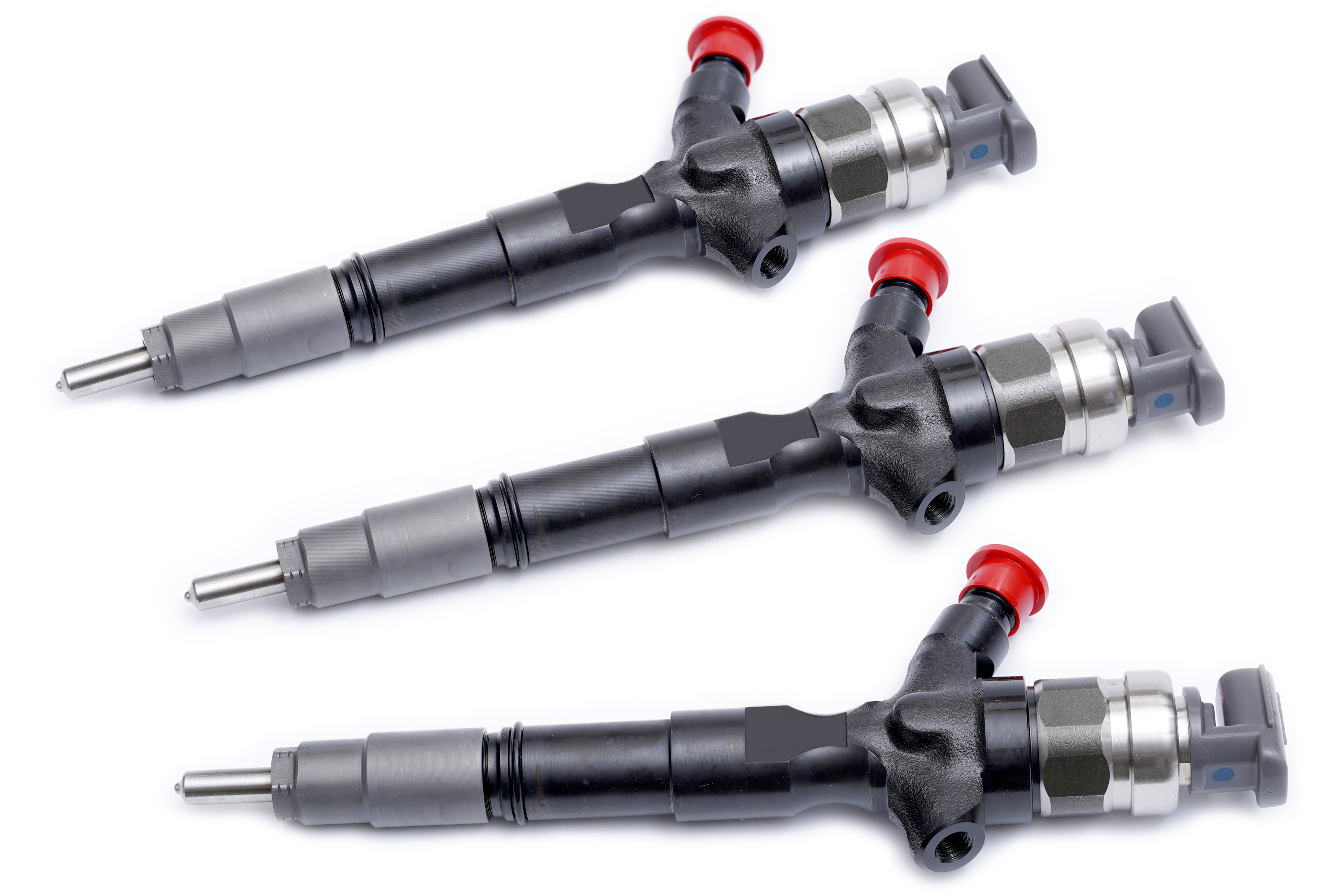
Clogged Fuel Injectors
Clogged fuel injectors can cause your vehicle to produce thick, black engine smoke and reduce its efficiency. Fuel injectors are responsible for delivering the correct amount of fuel into the engine cylinders. A clog, which is often caused by dirt or debris buildup, will not allow enough fuel to pass through, resulting in a rich air-fuel mixture that is difficult to combust. This causes incomplete combustion, leading to black smoke and poor performance.
Faulty Spark Plugs
Faulty spark plugs can cause your ride to produce thick, dark smoke and reduce its power. Faulty wiring in the spark plug circuit of your car’s engine can cause these issues, as well as air filter issues, dirty oil, and faulty timing that would all lead to an incomplete combustion process in the cylinders. This will result in unburnt fuel leaking out of the exhaust system, leading to black smoke and a decrease in power output by the engine.
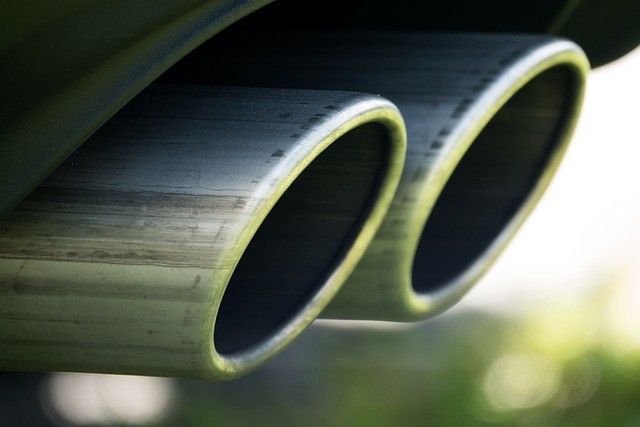
Blocked Exhaust System
When your exhaust system is blocked, it can cause serious problems for your ride; don’t let it go unchecked.
One of the most common causes of a blocked exhaust system is contaminated oil. This happens when the oil in your engine gets too old and starts to thicken, which clogs up the pipes and prevents air from escaping.
Overheating
Overheating can be a major issue for any vehicle, so it’s important to pay attention to the warning signs and take action before it becomes an even bigger problem.
One of the most common causes of engine overheating is faulty radiator, fan or other cooling system components. The radiator works to keep the engine cool by circulating coolant around the engine blocks and cylinder heads. If it’s damaged or not functioning correctly, then the fluid won’t flow properly, leading to increased temperatures in the engine.
Additionally, incorrect coolant used in combination with a faulty radiator can result in overheating as well. A damaged thermostat could also cause over-cooling; this occurs when either too much or too little coolant is released into the system.
Bad Gaskets
Bad gaskets can cause all sorts of problems, from coolant leaks to smoke billowing from exhausts. A faulty or blocked air filter, corroded hoses, and weak valves are some common indicators of a bad gasket.
This is especially true if the car has been running for a prolonged period of time without any service or repair works. Another indicator is if there is an oil leak that seems to be coming from beneath the engine, as this could mean that a broken seal within the engine is causing it to lose oil pressure and create smoke.
Click here to learn more about why a bad gasket can cause your engine to start smoking.
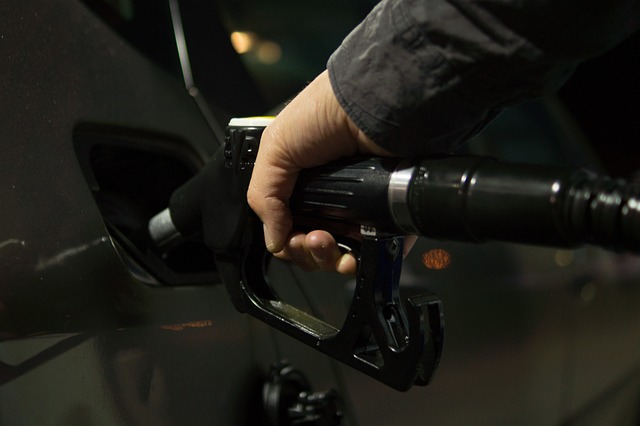
Incorrect Fuel Mixture
Incorrectly blended fuel can cause your vehicle to run inefficiently, resulting in smoke and potential damage. The most common causes of an incorrect fuel mixture are unmetered fuel, a clogged fuel filter, carburetor problems, a dirty air filter, or an issue with the fuel pump.
Unmetered fuel happens when too much gasoline is added to the tank and not enough air is present for combustion. A clogged fuel filter keeps clean gasoline from reaching the engine, causing it to run on dirtier gas that has passed through the filter. Carburetor problems can lead to improper injector timing or incorrect atomization of the air-fuel mixture which can cause smoke and other issues.

Worn Piston Rings
Worn piston rings can cause your vehicle to run inefficiently and emit smoke. Piston rings are responsible for creating a seal between the cylinder wall and the piston, which allows combustion pressure to build up in the cylinder. As a result of this compression loss, the fuel mixture is not burned efficiently and smoke is emitted.
If the piston rings become worn enough, they can start to leak oil into the combustion chamber which will further dilute the fuel mixture and create more smoke. Lastly, faulty valves or damaged pistons can also contribute to smoke emissions as they allow unburned fuel vapors to escape from your engine.
Leaking Head Gasket
You may be wondering why your car engine is smoking. One possibility you should consider is a leaking head gasket.
A head gasket seals the space between the cylinder head and the engine block, helping to prevent leaks of air and fluid. If it becomes damaged or worn, it can lead to oil and coolant mixing together, which often leads to smoke coming from the engine.
Here are some things to look for that could indicate a leaking head gasket:
Leaking seals
Damaged hoses
Damaged valves
Oil leaks
Loose connections
When inspecting your vehicle for signs of a leaking head gasket, make sure you check all these components carefully. In addition to smoke coming from your engine, other indications of a leak include bubbles in the radiator or coolant overflow tank, white exhaust smoke, and steam coming out from under your hood when it’s running hot.
To repair this issue correctly, you’ll need an experienced mechanic who can diagnose the problem accurately and replace any worn parts with quality replacements.
Click here to review more reasons why your car engine may be smoking.
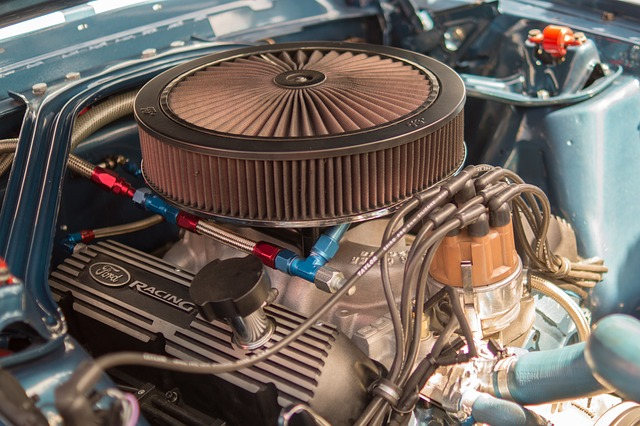
Frequently Asked Questions
Is smoking from my car engine dangerous?
Smoking from your car engine can be dangerous and shouldn’t be ignored.
You may notice a burning smell, oil leaks, or even malfunctioning ignition coils.
Vacuum leaks or clogged filters could also be the source of the smoke.
It’s important to identify the cause and address it as soon as possible.
This will prevent further damage and ensure a safe driving experience.
How can I prevent my car engine from smoking?
Preventing your car engine from smoking requires you to inspect and maintain several parts of your vehicle.
Leaking oil, a blown gasket, faulty spark plug or fuel filter, and loose hoses can all cause smoke to come from the engine.
To prevent this, check the oil level in your car regularly, replace gaskets if necessary, change spark plugs and filters when advised by your mechanic or vehicle manual, and make sure all hoses are properly tightened.
Doing these things will help ensure that your car runs smoothly and doesn’t have an issue with smoking.
What are the signs of a bad fuel injector?
If you suspect your car may have a bad fuel injector, there are several warning signs to watch out for.
Clogged filters, fuel contamination, and faulty seals will all result in poor performance of the engine, as well as a decrease in fuel efficiency. Other issues, such as defective spark plugs, worn hoses, or incorrect pressure, can also lead to a malfunctioning fuel injector.
In addition to smoking from the engine, other indicators include rough idling and stalling of the vehicle while driving.
It’s important to address these issues quickly before any further damage occurs.
Is it possible to fix a smoking car engine on my own?
Fixing a smoking car engine yourself is possible, but it requires you to identify the cause of the issue.
You should begin by checking all fluids, such as coolant, brake fluid, and oil, to ensure they’re at proper levels.
Then, inspect any parts connected to your engine that could be causing an issue.
It’s important to also make sure you’re keeping up with regular maintenance for your vehicle, such as oil changes and other necessary repairs.
With careful identification of the cause and taking the steps needed to repair it properly, you can fix a smoking car engine on your own.
Conclusion
You may be wondering why your car engine is smoking. Well, it could be caused by a number of things.
Burning oil, clogged fuel injectors, faulty spark plugs, and blocked exhaust systems are all common causes. Bad gaskets, incorrect fuel mixture, worn piston rings, and leaking head gaskets can also result in smoke emitting from the engine.
To determine the root cause of your issue you should have a professional mechanic inspect your vehicle for any underlying problems that need to be addressed immediately. Taking preventive measures now will help ensure that your car runs safely and efficiently for years to come.








